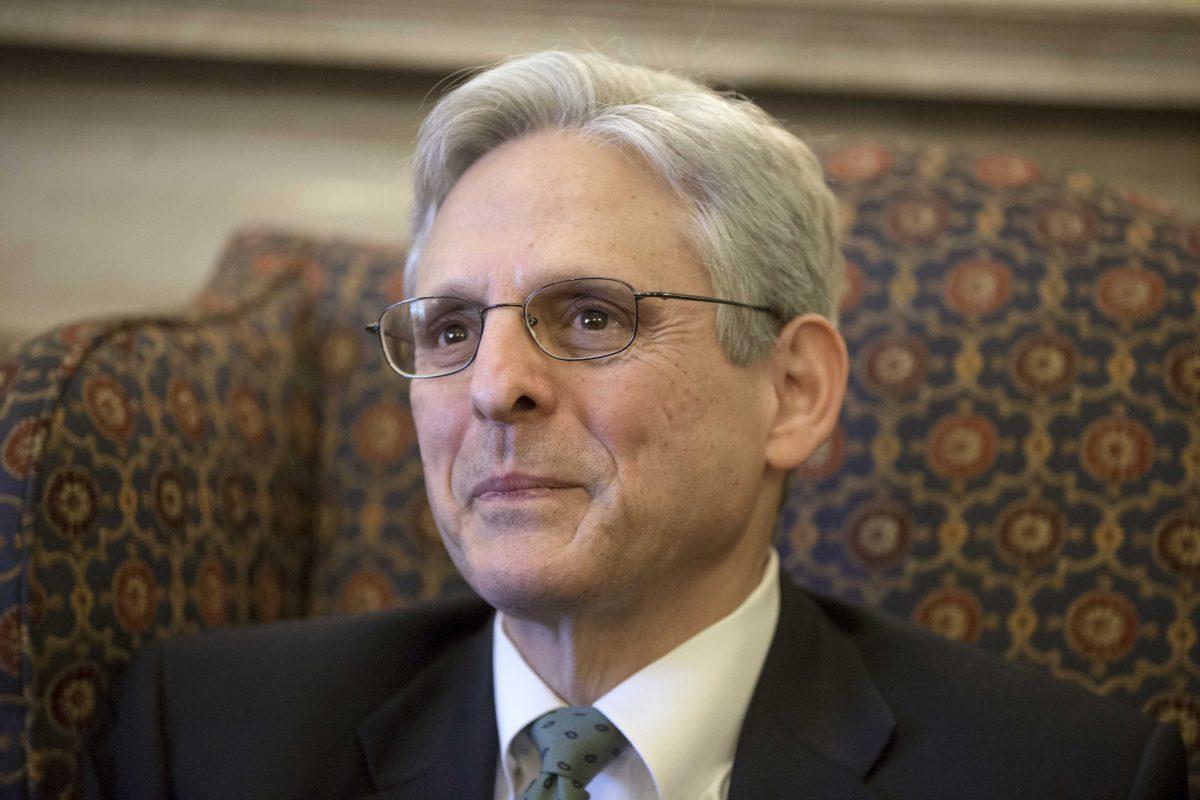President Barack Obama nominated federal appeals court judge Merrick Garland on Wednesday to fill the Supreme Court vacancy left by Justice Antonin Scalia, who died on Feb. 13.
Garland is the chief judge for the U.S. Court of Appeals for the D.C. Circuit and has served on the court since 1997. He has been celebrated by both Republicans and Democrats as a centrist with a distinguished career of public service.
Republican opposition to the nomination came swiftly, despite Garland’s qualifications. Senate Majority Leader Mitch McConnell took the Senate floor Wednesday to announce Senate Republicans would continue to deny Garland nomination hearings until a new president is elected in November.
Political science assistant professor Matthew Hitt said the Senate Republican’s position is a risk.
“Mitch McConnell is a gambler playing it this way,” he said. “Merrick Garland is a good deal if you think that there’s a more than 50-50 chance that Clinton wins and the Democrats can take the Senate.”
Despite the risk, the opposition is understandable. Garland’s nomination has the potential to shift the Supreme Court’s ideology leftward in a way that hasn’t occurred in decades, Hitt said. The Republicans are attempting to hold the line in the hopes that if a Republican president is elected in November, Scalia will be replaced with an equally conservative successor.
The risk could backfire.
Third year political science graduate student Sonny Marchbanks said the nomination will be a main focus for the upcoming general election. Overturning legislation and protecting the current standing of the court will be common battle cries among Republicans and Democrats, Marchbanks said.
Obstructing the nomination could be dangerous for Republican senators facing reelection in moderate states. Republican senators in states such as Ohio, Illinois and Pennsylvania will be under enormous pressure from both moderate and liberal constituents and the conservative right, Hitt said.
Politics in Supreme Court nominations is nothing new, he said.
“Especially in the modern era, all Supreme Court nominations are politicized,” Hitt said. “I mean, how could it be any other way when you have political figures, elected officials, doing all the work. They’re the ones who make the nominations and then confirm them. Of course there’s going to be politics when you ask politicians to do something.”
The politicizing of the Garland nomination has been especially pronounced. McConnell‘s and Senate Judiciary Chairman Chuck Grassley’s refusals to receive an Obama nominee, even in private meetings, is unprecedented, Hitt said.
McConnell said Republicans are attempting to give the American people a voice in the nomination process by delaying the hearings until the next president assumes office. Marchbanks said constituents had their say in previous elections and the Republicans are attempting to change the process in light of unfavorable circumstances.
Obama chose Garland based on his qualifications, not politics, Marchbanks said.
“He knows this is somebody that is going to be serving long after he is out of the White House, so how they approach the Constitution is his first consideration, not politics,” Marchbanks said. “The interpretation of the Constitution is binding and lasting, whereas politics are today and temporary.”
Though the odds Garland will receive a hearing before November are low, it is still possible he could receive approval from the Senate, Hitt said. If Democrats take the Senate and a Democratic president is elected in November, Garland is the Republicans’ preferred choice to a more liberal justice, he said.
Professor, graduate student break down U.S. Supreme Court nomination
March 17, 2016
Judge Merrick Garland, President Barack Obama’s choice to replace the late Justice Antonin Scalia on the Supreme Court, sits during a meeting with Sen. Patrick Leahy, D-Vt., the top Democrat on the Senate Judiciary Committee on Capitol Hill in Washington, Thursday, March 17, 2016. (AP Photo/J. Scott Applewhite)
More to Discover







